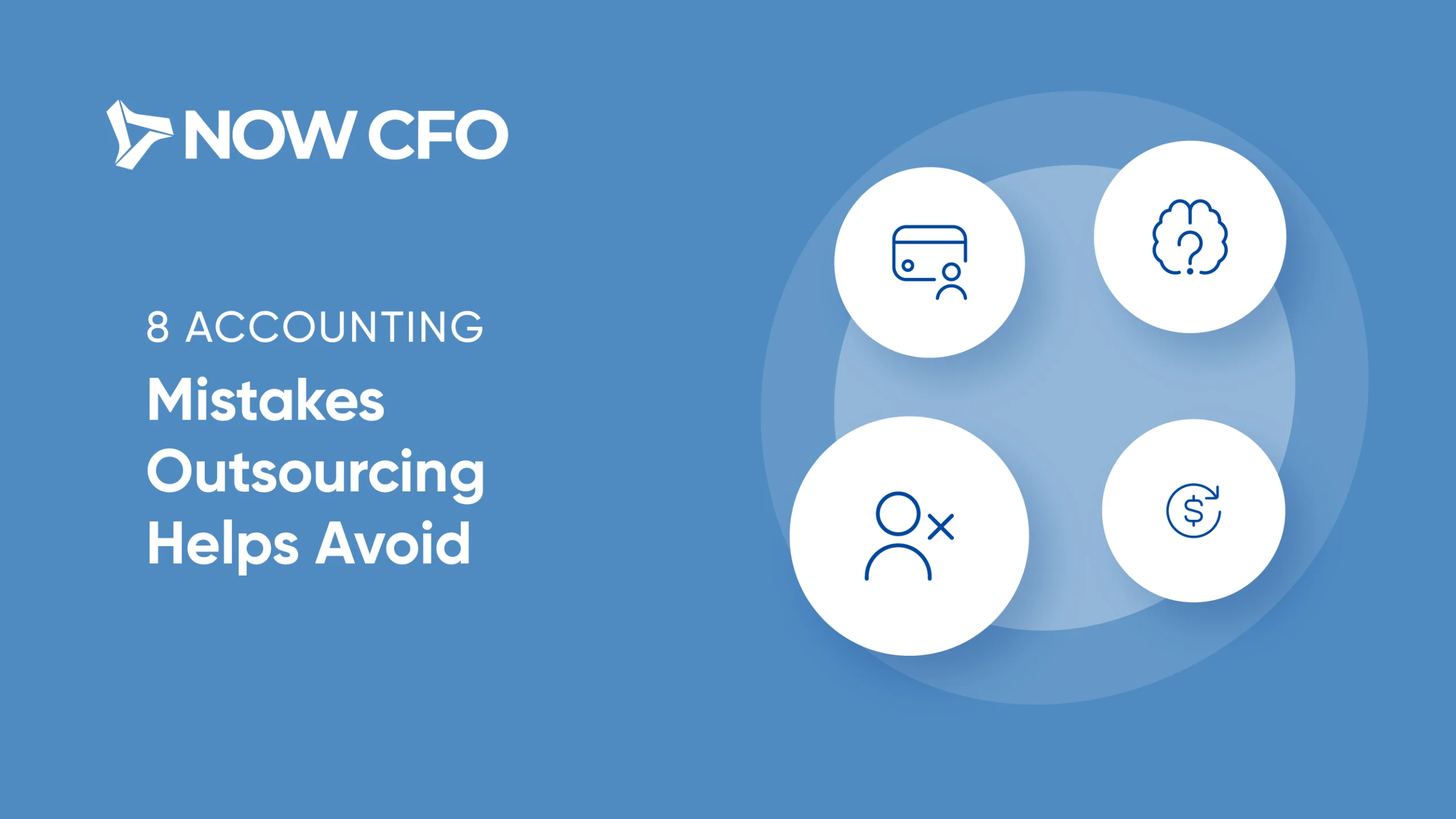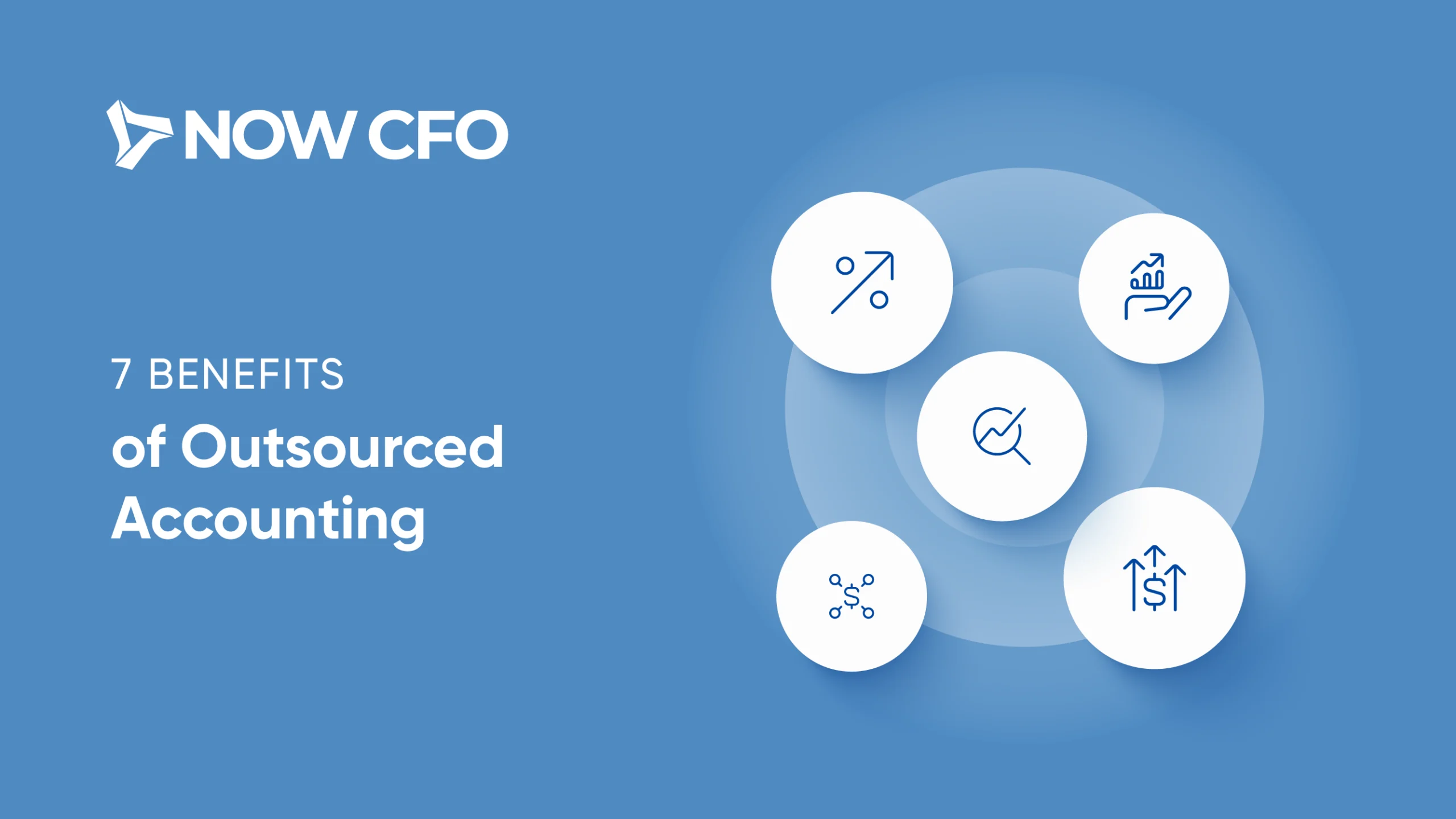
Managing accounting in-house might seem like a smart way to cut costs, but it often comes at the expense of accuracy, time, and financial visibility. SMEs frequently face late financial statements, compliance errors, and unclear cash flow due to overwhelmed internal teams and inconsistent processes.
Outsourcing your accounting offers more than just back-office relief. It’s a strategic move that provides cost control, access to financial expertise, and scalable solutions aligned with your company’s growth. From reducing overhead to gaining real-time reporting, the benefits are both measurable and long-term. In this article, we will understand the top 7 benefits of outsourcing your accounting.
1. Save between 20% to 60% on Accounting Costs
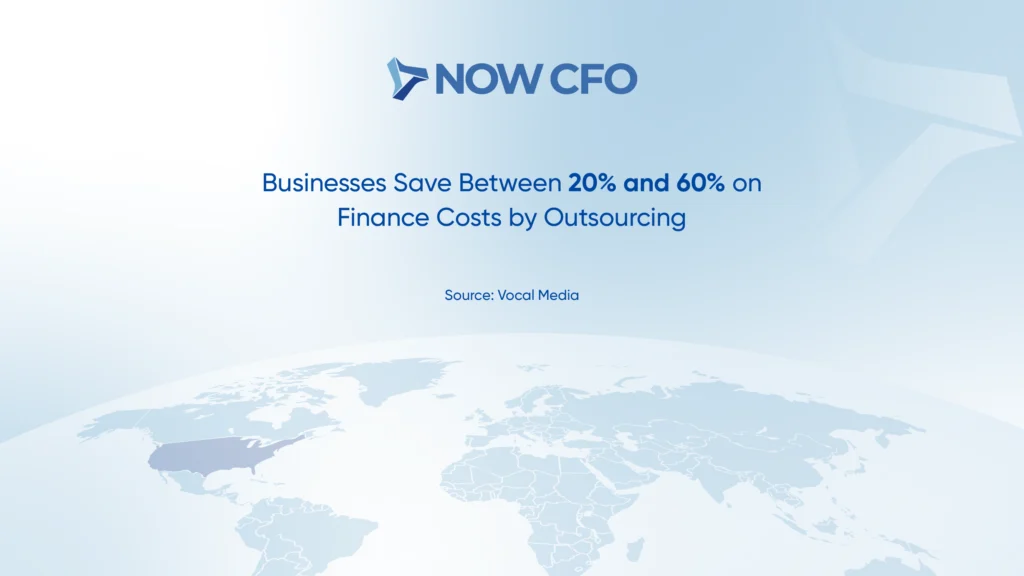
For many SMEs, maintaining a full-time accounting department is resource. From base salaries and benefits to onboarding and training, the costs add up quickly.
Outsourced accounting services slash these fixed costs by converting them into variable expenses. Instead of paying full-time wages, businesses pay only for the work performed when it’s needed. This flexibility helps preserve cash flow, especially for companies with seasonal cycles or unpredictable revenue streams.
Source: Vocal Media
2. Growing Trend: 37% of SMBs Already Outsource
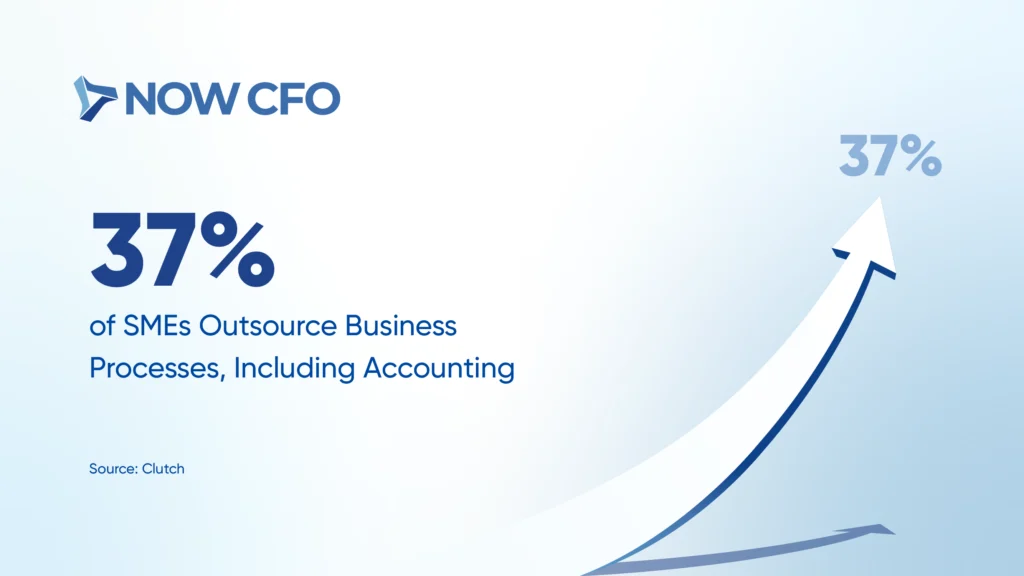
More than one-third of small businesses already rely on outsourced accounting to streamline operations and reduce internal workload. This trend is especially popular among service-based companies, tech startups, and owner-led businesses without in-house finance teams.
The growing popularity of outsourcing stems from a desire to reduce internal complexity. As regulations, tax codes, and reporting standards evolve, business owners are realizing they’re better off focusing on core competencies rather than trying to master financial compliance on their own.
Source: Clutch
3. Save Money, Move Faster, Stay Agile

Outsourcing accounting not only saves money, but it’s also a strategy for agility. In fact, 70% of companies outsource to reduce costs, while 15% cite improved agility and 20% point to faster speed to market as key drivers.
Businesses need to pivot quickly, scale efficiently, and launch initiatives without operational delays. An outsourced accounting team supports these goals by removing hiring bottlenecks and ramp-up time.
Source: Deloitte
4. Boost Efficiency by Up to 25%
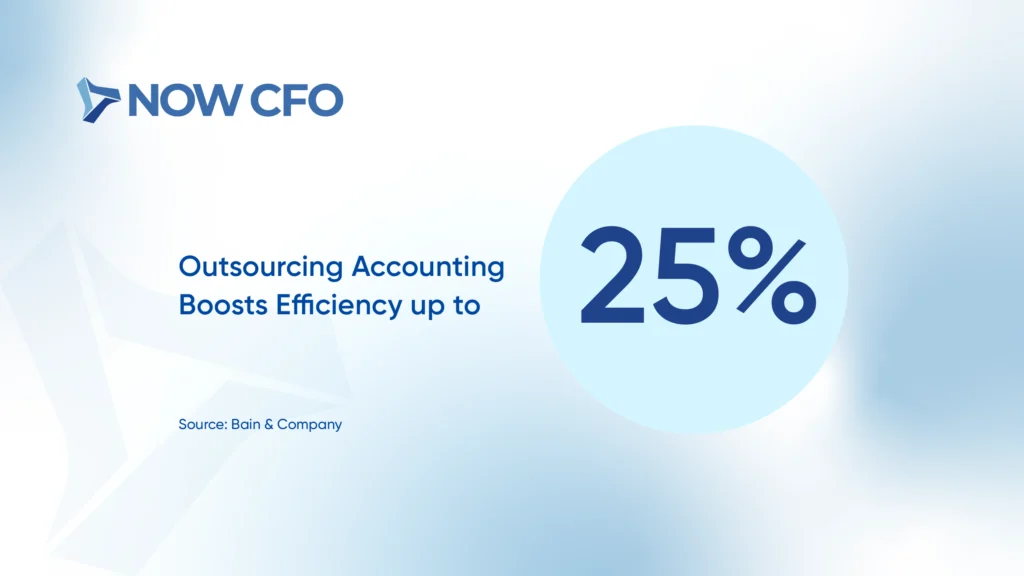
Efficiency is about precision, consistency, and process optimization. Professional accounting firms specialize in lean, repeatable workflows that eliminate redundancies and reduce human error. This translates into faster closes, more accurate reporting, and less time wasted chasing down discrepancies.
In-house teams often juggle multiple responsibilities, pulling focus away from strategic tasks. Outsourced providers, however, dedicate their full attention to the financial health of your business. Their specialized tools and systems drive performance improvements that most internal teams can’t match without major investment.
Source: Bain & Company
5. Tap Into a $110 Billion Market of Financial Experts

The rise of the accounting outsourcing market is a sign of industry maturity. As businesses face increasing complexity in tax, compliance, and financial reporting, they’re turning into a robust and rapidly growing sector for solutions.
This market growth means more specialization, better tools, and access to top-tier financial talent at competitive rates. Outsourced accounting firms continuously invest in technology and training to stay ahead.
Source: Grand View Research
6. Outsourced Accountants Boosts Sales
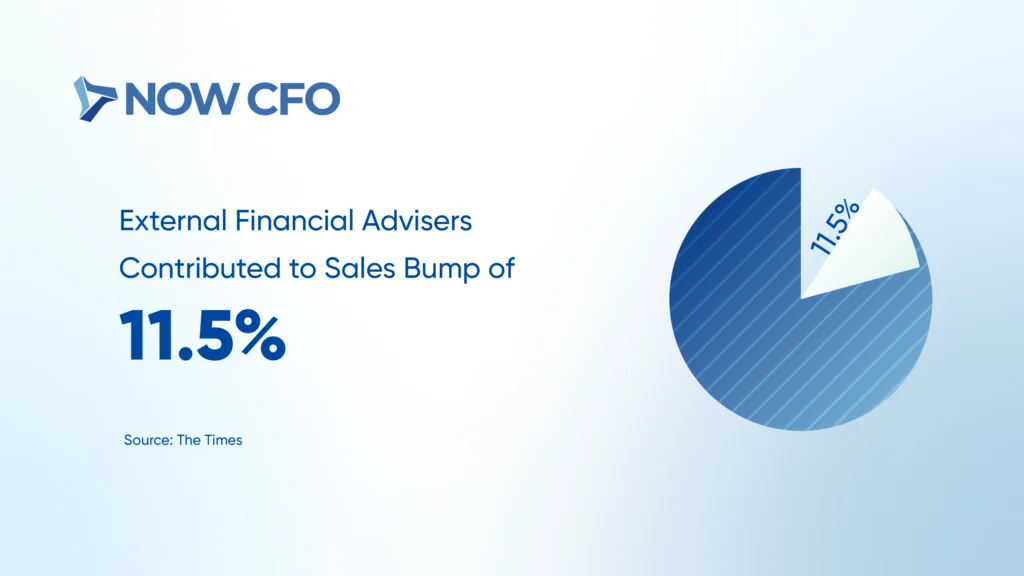
Outsourced accounting can be a revenue driver. Many business owners underestimate the strategic value of financial expertise. With external accountants, companies gain insight, analysis, and advice that drive smarter business decisions.
Outsourced CFOs and controllers bring a fresh perspective that helps uncover blind spots internal teams often miss. They deliver actionable insights by identifying hidden cash flow opportunities, improving pricing models, and managing tax strategies.
Stat Source: The Times
7. Gain Back 9.1 Hours/Week with Experts
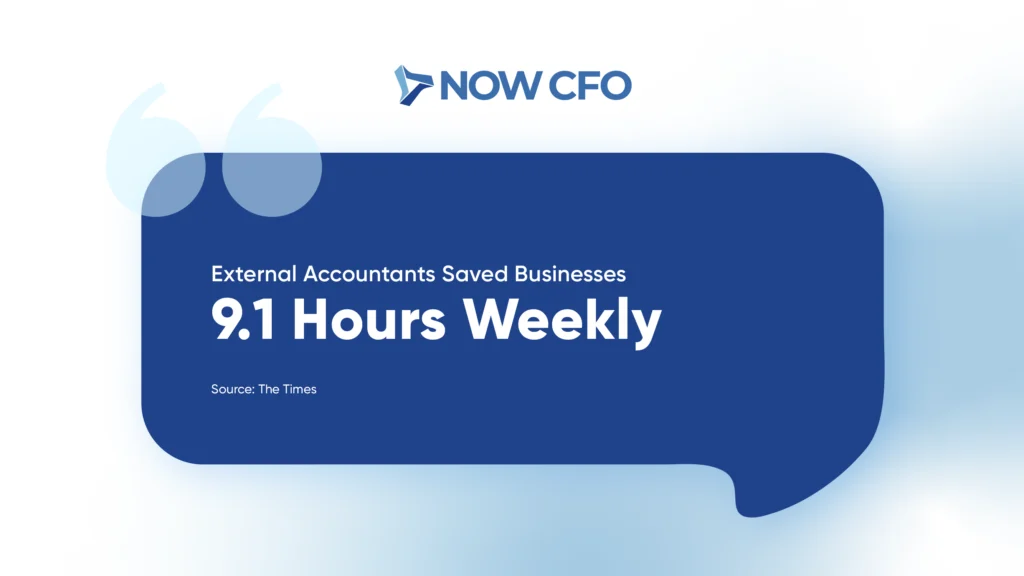
Time is one of the most valuable resources a business owner has. Entrepreneurs already spends hours on accounting tasks, often late at night or on weekends. That’s time taken away from customers, team development, or strategic planning.
By outsourcing, leaders can reclaim their schedules. No more wrestling with spreadsheets, bank reconciliations, or deadline pressure. Instead, outsourced teams handle day-to-day while business owners focus on high-value priorities.
Stat Source: The Times
Conclusion
Outsourcing your accounting is a strategic decision that brings measurable value. As we’ve explored, the advantages extend far beyond saving money.
NOW CFO has helped thousands of businesses transition to smarter, more scalable accounting models. Schedule a free consultation today and see how outsourcing can power your business’s next stage of growth.
Frequently Asked Questions
1. What are the advantages of outsourced accounting for startups and small businesses?
Outsourced accounting helps startups reduce overhead, access financial expertise early, and avoid the complexity of building an internal team. It enables founders to focus on scaling rather than managing books, ensuring accurate financial records from the beginning.
2. How Does Outsourced Bookkeeping Differ from Hiring a Freelance Accountant?
Outsourced bookkeeping services are typically delivered by a team with robust processes, technology platforms, and quality controls. In contrast, freelance accountants may lack the structure, scalability, or multi-role coverage that growing businesses require.
3. Is Outsourced Financial Reporting Secure and Compliant with U.S. Regulations?
Reputable outsourced providers follow GAAP standards, IRS guidelines, and industry best practices. Many also employ secure cloud-based systems with audit trails, encryption, and multi-factor authentication to protect sensitive financial data.
4. Can Outsourced Accountants Integrate with Existing Accounting Software Like Quickbooks Or Netsuite?
Most outsourced accounting firms are platform-agnostic and highly experienced with leading tools like QuickBooks, NetSuite, Xero, and Sage. They can either integrate into your current setup or recommend enhancements for better reporting and control.
5. What is the Cost of Outsourced Accounting Compared to Hiring an In-House Accountant?
The cost of outsourced accounting is generally lower when factoring in salary, benefits, training, and overhead. You only pay for the services you need, making it a cost-effective solution.
6. Why Outsource Accounting Instead of Using Internal Staff for Financial Management?
Internal staff often juggle multiple responsibilities, leading to errors, delays, or lack of strategic insight. Outsourcing gives you a team of specialists focused solely on your financial health, improving reporting, compliance, and decision-making.




